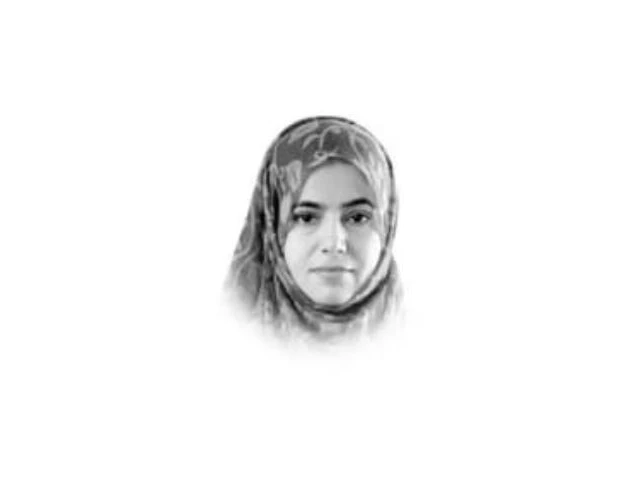Her role in building a nation
A society that sidelines its women is akin to a lion

The progress of any nation hinges on the active involvement of its women in socio-political, educational, business, and technological domains. In Pakistan, women are not just participants but catalysts for change. Overcoming cultural and societal hurdles, their contributions are pivotal in building a prosperous and progressive country.
A society that sidelines its women is akin to a lion - strong and mighty in physical strength but helpless and dependent when caged. Women are equally capable and strong, ready to play positive roles that uplift the nation in every aspect, alongside their primary responsibilities. As caregivers, educators, professionals and leaders, they stabilise and uplift society. Their active participation fortifies the foundation for holistic national progress.
Many women have achieved remarkable milestones in their lifetimes, particularly in leadership and resilience, when given opportunities to excel. Fatima Jinnah, the Mother of the Nation, played an active role in the independence movement, consistently supporting her brother, Muhammad Ali Jinnah, in his leadership to establish Pakistan. Similarly, Benazir Bhutto shattered barriers by becoming Pakistan's first female Prime Minister, leading the nation toward growth and progress. Asma Jahangir, a fearless human rights advocate, championed justice and equality for an equitable society.
Education is a powerhouse of opportunities, yet many girls remain deprived of this fundamental right, falling victim to persistent illiteracy. Of the approximately 25 million children out of school in Pakistan, girls constitute a larger proportion, outnumbering boys. Poverty, inadequate infrastructure and restrictive societal norms often compel girls to abandon their education. When voices are raised for girls' education, attempts are often made to silence them, as seen in the case of Malala Yousafzai. Fortunately, she survived the attack and continues to advocate for the education of girls worldwide.
In business, Pakistani women are breaking barriers and driving economic growth. Through initiatives like 'Womenomics', women entrepreneurs are promoting economic diversification. Women-led start-ups and small enterprises play a key role in revitalising both urban and rural economies. These efforts not only empower individuals but also strengthen the national economy.
In technology, women like Arfa Karim Randhawa and Dr Nergis Mavalvala, have achieved remarkable milestones. Arfa, a prodigy in IT, became the youngest Microsoft Certified Professional in the world. Dr Mavalvala, a physicist at MIT, has earned respect as a contributor to technology and research, making the country proud and encouraging further female participation in these fields.
According to the 2023 Pakistan Population and Housing Census, 48.51% of the total population is female. Rural women work alongside men in the fields, ensuring food security and sustaining the agricultural economy. Their contributions, though often overlooked, are vital for national progress.
Gender disparities in education, economic participation, and health continue to widen. Pakistan's 2023 Global Gender Gap Index ranking - 143rd in economic participation, 139th in education and 132nd in health and survival - reveals the severity of the issue. Comparatively, regional neighbours such as Bangladesh (99th) and India (129th) have made more progress in bridging the gender gap.
For Pakistan to achieve sustainable development, empowering women must be a priority. Policies promoting equal access to education, economic opportunities and socio-political decision-making must be implemented, with an emphasis on mutual respect, equality and shared goals.
The contributions of women have laid the foundation for Pakistan's growth. However, urgent action is required to address the challenges faced by the majority of women today. Bridging the gender gap is not merely a moral obligation but a necessity for Pakistan to compete globally, alongside other nations where women play an equal role in societal development. Women are not just contributors to the progress of the socio-political and economic sectors; they are equal partners in building Pakistan's future.
I ask the readers: do you support the active role of women, alongside men, in society?
















COMMENTS (2)
Comments are moderated and generally will be posted if they are on-topic and not abusive.
For more information, please see our Comments FAQ